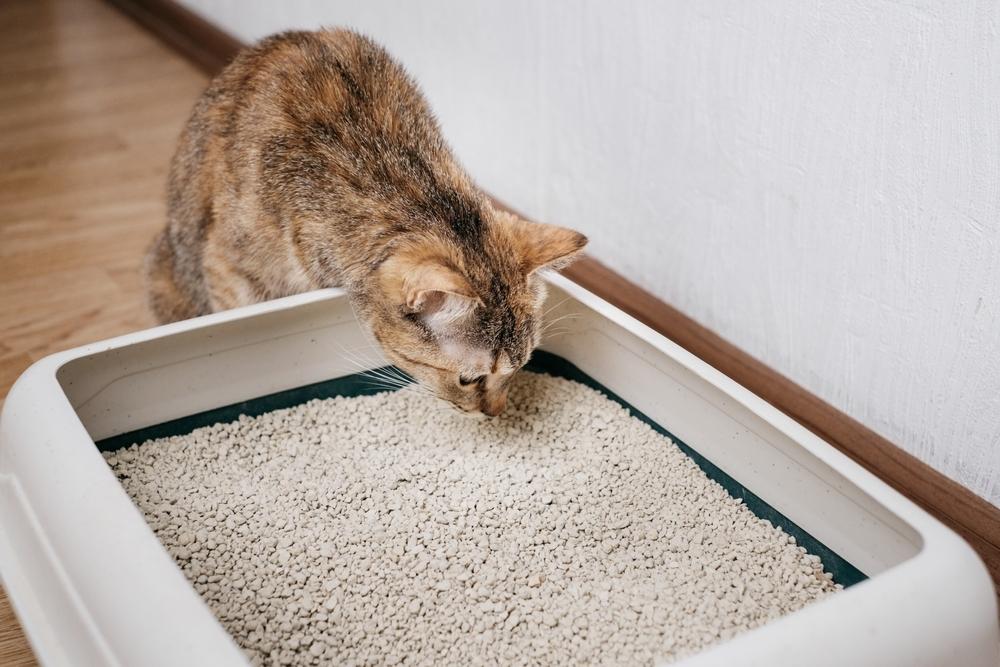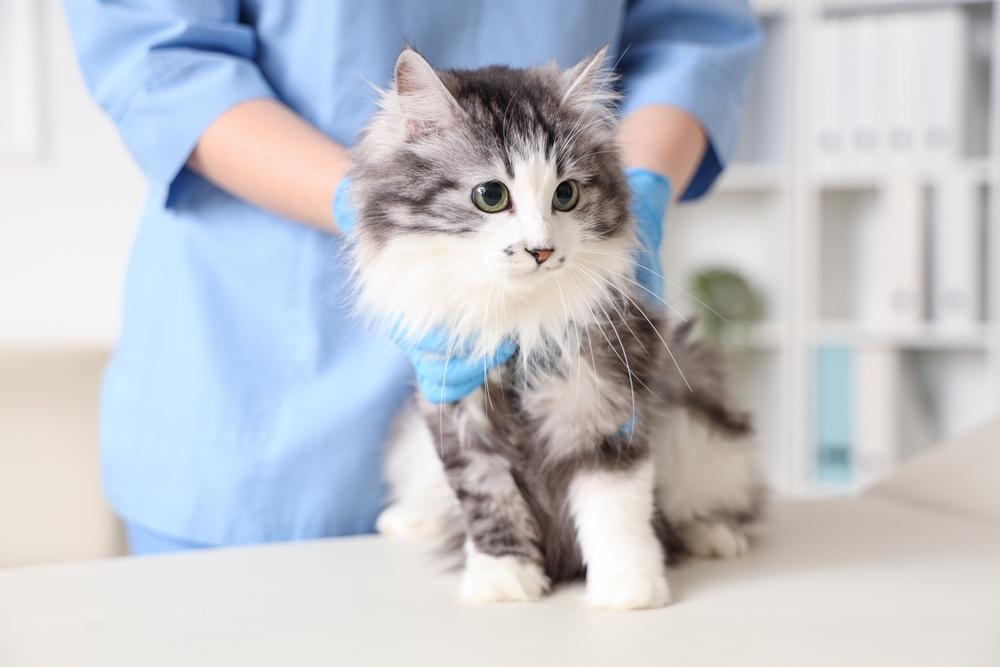

Roundworms in cats are one of the most common intestinal parasites that pose a risk to our beloved felines, whether your kitty stays strictly indoors or spends time outside. Discover the answers to important questions about this frequently diagnosed creepy-crawly, including whether you can see roundworms in cat stool, whether you can get roundworms from a cat, and what to know about treatment and prevention.
What Are Roundworms in Cats?
Various types of worms can affect our feline friends, from tapeworms to lungworms. (Notably, despite its name, ringworm has nothing to do with worms at all.) And then there are roundworms. While you're unlikely to see the actual worm in most cases, these wiggling spaghetti-like worms can occasionally be visible in your cat's stool or vomit. Tubular in shape and several inches or more in length, the most common species of roundworms in cats include the Toxocara cati and Toxascaris leonina species.
Also known as ascarids, roundworms can cause disease in not only cats but in dogs, people and a number of other animals. Roundworm control and prevention throughout your cat's life is part of keeping your cat healthy — as well as keeping your home safe for other pets and human family members.

What Are the Signs of Roundworms in Cats?
The signs of roundworms in cats can vary but may include:
Coughing or wheezing
A round belly
Dull or poor hair coat
Vomiting (with or without visible worms)
Diarrhea (with or without visible worms)
Weight loss
Loss of appetite
Lethargy
Fever
The presence of roundworms in cat feces
Roundworm infections in cats, especially adults, are commonly asymptomatic (meaning they don't cause any noticeable signs).
How Are Roundworms Diagnosed?
While you may see cat worms in poop or vomit in heavily infected cats, most cases don't involve visible roundworms in cat stool. This is why regular fecal exams are such an important part of routine veterinary care. Fecal examination under a microscope, which allows the examiner to identify worm eggs, usually leads to diagnosis.
Occasionally, however, a cat infected with roundworms may not be shedding eggs at the time the stool sample is taken. If your veterinarian suspects your cat has roundworms, they may recommend examining another stool sample or treating the worms as a preventive measure.
Where Do Cats Get Roundworms?
Cats can become infected with roundworms in three ways:
Nursing from an infected mother cat (the most common cause in kittens)
Ingesting eggs from a contaminated environment, most often by grooming after walking on infected soil
Eating an infected prey animal (or any infected raw meat)
Can You Get Roundworms From a Cat?
Indeed, you can get roundworms from a cat. Children, seniors and people who are pregnant or immunocompromised are at increased risk of health problems from roundworm infection. Most cases of transmission are tied to improper sanitation — swallowing the microscopic eggs is the most common way humans become infected. Litter boxes are a common source of infection, so litter box sanitation and handwashing after scooping or otherwise handling the litter box is pertinent to sharing your home with a cat. Children can also become infected by swallowing parasite eggs after spending time in contaminated sandboxes or dirt.
Some people can be asymptomatic, while others may present a range of signs — some serious — depending on whether the parasite's larvae migrate into the organs. For instance, migration to the eye can cause blindness, though this is considered rare.
While the common cat roundworm does pose a risk to humans, people can become infected with a number of roundworm species from different animals. Most cases of human infection are linked to ingesting contaminated food, water or soil — not sharing your home with a cat. Still, as one of the most common parasitic infections in people worldwide, roundworms shouldn't be taken lightly.

How Are Roundworms Treated?
In most cases, your vet can easily treat roundworms with deworming medications administered a number of weeks apart to target the parasite's different life stages. After treatment, your vet will need to repeat a fecal exam to ensure the infection is cleared. During treatment, you may see live or dead roundworms in cat poop. While unsettling, this is normal.
Take sanitation measures during and after treatment to prevent recurrence. This includes completely emptying the contents of your cat's litter box and washing it with warm, soapy water followed by a disinfectant, such as a diluted bleach solution. Once refilled with fresh litter, scoop the box at least once a day. If you're pregnant, exercise extra caution when handling your cat's litter box or avoid it altogether if possible.
While roundworms usually carry an excellent prognosis when treated, severely infected kittens may succumb to infestation. The general recommendation for kittens is to start deworming between four and six weeks of age, repeating every two weeks until they're placed on a preventive parasite control medication that protects against roundworms. In general, kittens should have a total of four fecal exams during their first year with fecal exams every six to 12 months thereafter or as recommended by your vet.
The Roundup on Roundworms in Cats
Roundworm infection is one of the most common parasitic illnesses affecting cats, often caused by ingesting contaminated mother's milk, soil or prey (raw meat). Infected adult cats may be asymptomatic, while infection in kittens can be more serious and even life-threatening.
In most cases, roundworms are easily treatable with a simple dewormer. During and after treatment, take steps to sanitize your cat's litter box to help prevent recurrence. Routine fecal exams and year-round parasite prevention are key to avoiding this parasite altogether, so talk to your vet about how to support your cat's health and keep roundworms at bay.






















